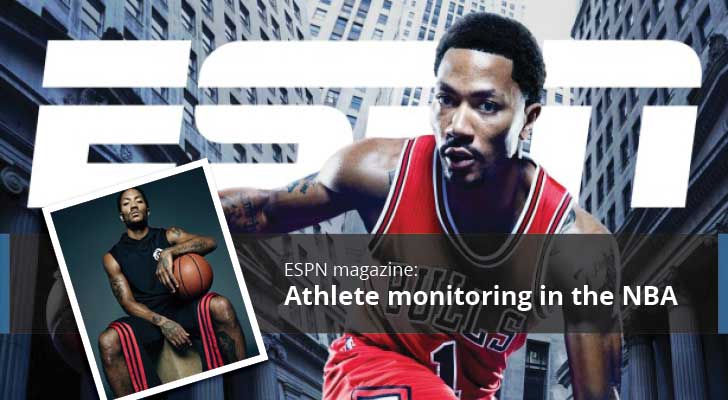ESPN Magazine: Athlete monitoring in the NBA
In a league where teams often play back-to-back nights in different cities requiring late, post-game travel, sufficient sleep is hard to come by and fatigue, in due time, can take its toll.
Accordingly, last season the tech-savvy Dallas Mavericks became the first NBA team to partner with Fatigue Science, followed by the Brooklyn Nets, with additional teams joining for the upcoming 2014-2015 season. Using the Readiband system, the Mavs monitor players’ sleep and fatigue to help ensure they are ready come game time.
The Mavericks’ training staff recently spoke with ESPN regarding the team’s use of technology to monitor its players.
“If you told an athlete you had a treatment that would reduce the chemicals associated with stress, that would naturally increase human growth hormone, that enhances recovery rate, that improves performance, they would all do it. Sleep does all of those things,” said Mavericks’ Head Athletic Trainer, Casey Smith.
This is exactly what Stanford School of Medicine researcher, Cheri Mah, demonstrated in 2011 study on the impacts of sleep extension to athletic performance. The study, published in the journal of Sleep, examined 11 varsity men’s basketball team players and found that increasing sleep to 10 hours a night decreased injury risk and improved players’ reaction time, sprint times, and free-throw percentage.
“Once guys get a feeling for performing at a higher level,” says Jeremy Holsopple, the team’s Athletic Performance Director, “it’s a big difference from feeling like s—. Which they didn’t even think was feeling like s—.”
Holsopple says that “teams lose 10 to 15 games a year because players aren’t even remotely close to physical and mental freshness,” which undoubtedly is something the Mavericks want to mitigate this season.
Read the full article here, or pick up October 27’s copy of ESPN The Magazine NBA Preview Issue.
